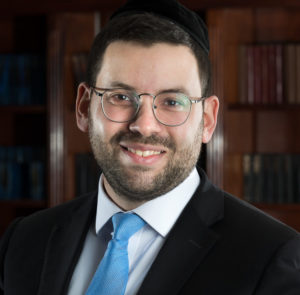No Way to Run a Business

Is the young generation today really so hopelessly immune to the blandishments of outreach?
The conversation continues
The kiruv discussion on these pages over the past few weeks has generated much passion and a slew of opinions. Last week, Rabbi Gidon Shoshan of Olami wrote that the biggest crisis in kiruv is that there simply aren’t enough individuals who are willing to go into the “business.”
There is a related issue, and that — from my vantage point — is that the very structure of most community kiruv kollelim and organizations is flawed. It is this structural flaw that deeply affects organizational efforts and indirectly discourages talented people from joining the kiruv forces.
I want to preface these thoughts by explaining that this is not referring to any specific kiruv organization, but rather based on my experience and secondary involvement with kiruv organizations and mekarvim in several cities around the country. This theory has been corroborated by many mekarvim and former mekarvim. I am, however, aware of exceptions, including within the kiruv scene in Houston where I’m located. (This issue is also not part of the debate as to whether effective kiruv is still possible in this generation.)
The fundamental issue is that in most kiruv organizations there is no separation between money and mission — and a healthy, effective nonprofit must have a separation between the two.
Doctors in a hospital, for example, are generally not responsible for raising money to build a new wing — that’s the responsibility of the executive director. If the doctors were responsible to meet the hospital budget, they would surely favor wealthier patients, and a large percentage of their time would be spent cultivating those relationships instead of focusing on healthcare.
Imagine how awful it would be if the rebbeim and moros in our schools were responsible for the budget of the institution. Would you send your children to such a yeshivah? I most certainly wouldn’t!
In our particular kollel, and in most full-time learning kollelim, the chavrei hakollel are given full independence to choose which community members they want to learn with during night seder. Financial capabilities and wherewithal have no bearing on their decision.
In fact, kiruv organizations are the only nonprofits I can think of in which the money and mission are so tightly woven together. The best mekarvim are usually saddled with massive financial responsibility. As their careers progress they end up spending more and more time cultivating their donors and potential donors instead of doing real outreach. Even if an organization doesn’t immediately place fundraising responsibilities on new employees, inevitably as they start developing inroads they will find themselves responsible to raise funds as well.
This structure has several flaws. Here are a few:
It is very difficult to create headspace for two demanding jobs. If your head is stressed with financial responsibility, you simply are not going to be as effective with your core mission.
A mekarev is forced to focus on the gold instead of the goal. It becomes more important to cultivate the relationship with the wealthy guy who has minimal potential of becoming shomer Shabbos than someone more interested but less well-to-do. Aside from focusing on the wrong targets, the amount of time spent cultivating donor relationships is time taken away from real kiruv work. According to a few mekarvim I’ve spoken to, less than 50 percent of their time is spent effectively from a kiruv standpoint.
In many instances, the fundraising responsibilities placed on mekarvim causes infighting. There is bickering about who can take credit for each donor or major contribution. Whose “guy” is it? This often creates a toxic environment within the organization.
Many people who are cut out for kiruv are not a good fit for fundraising or have no interest in fundraising.
In speaking to friends and acquaintances, it’s clear that many talented individuals are not interested in going into kiruv for these reasons. In other cases individuals who were already involved in kiruv dropped out because of these pressures.
One of the most effective mekarvim I ever met is someone involved with campus kiruv. For a long time he had been completely externally funded, but recently the organization that was funding him notified him that he must start matching its grant with self-generated funds. There has been a marked difference in his energy level and ability to focus on kiruv once he was saddled with this burden.
It simply doesn’t make sense from a business and financial investment perspective to run an organization where the output becomes exponentially diminished. In fact, in certain organizations the entire mission of kiruv has been supplanted with fundraising and marketing. It merely becomes a means for survival.
Mekarvim are among the most talented and driven people. There may not be an easy answer to this issue, but can’t we figure out a way to just let these outreach experts actually do kiruv?
Originally featured in Mishpacha, Issue 730. Rabbi Moshe Friedman is the executive director of the Kollel of Houston. Kollel of Houston is a full-time learning kollel founded in 2010 by local community leaders with the assistance of Beth Medrash Govoha.
Oops! We could not locate your form.













